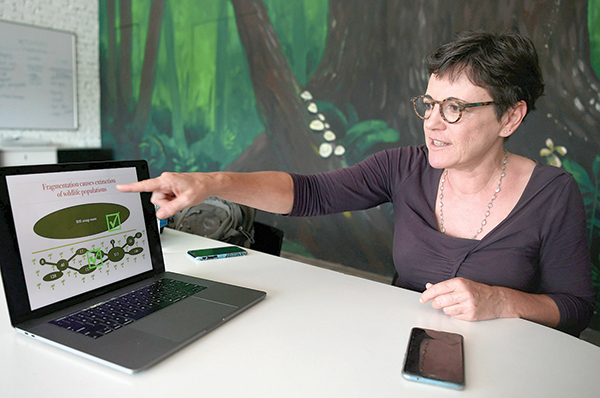Kinabatangan estates to work with NGO on elephant corridor
Published on: Wednesday, October 30, 2019

KOTA KINABALU: Two oil palm plantations in Kinabatangan, Sabah are collaborating with a French wildlife and environmental conservation non-governmental organisation (NGO), known as Hutan, to establish an elephant corridor in an effort to help reduce conflict between humans and wildlife.
Hutan director Dr Isabelle Lackman said the collaboration, which also involves the Sabah Wildlife Department, aims to strengthen human-wildlife co-existence and further enhance conservation efforts to protect endangered species.
ADVERTISEMENT
She said one of the plantations is considering setting up a corridor that will link the Lot 2 Kinabatangan Wildlife Sanctuary to the other plantation because of regular elephant sightings in the area.
The collaboration will allow a 100-meter-wide and three-kilometre long corridor for the pilot project, she added.
“This wildlife corridor pilot project is the first of its kind. Oil palm harvesting operations will continue as usual but with very stringent standard operating procedures (SOP), including chemical usage,” she told Bernama here.
Isabelle said the SOP will also include training programmes for farm workers as well as the formation of an elephant warden team to effectively manage wildlife in the area.
ADVERTISEMENT
“We hope the establishment of this pilot corridor project will provide a comfortable and safer route for the elephants. We also hope that by this, the elephants would be able to roam along the corridor and not in the other parts of the plantation so that crop damage could be reduced,” she explained.
Isabelle is aware that one of the oil palm companies already has plans to create a harmonious living environment with wildlife in Sukau, Kinabatangan.
ADVERTISEMENT
Among others, there is no fencing mounted, allowing elephants to roam freely in their plantation, except in their re-planting area, she said.
Based on the frequency of elephant movement sightings to the area last year, Isabelle said an estimated 150 elephants use the oil palm plantations as a route to look for food.
“So far, we have found that crop damage caused by the elephants is much smaller than before, there may still be some damage caused, but not as significant,” she said.
Isabelle said the plantation companies also organise many awareness programmes on elephant conservation, not only for their staff but also for students.
Also, Isabelle said Hutan, which has been working on the Kinabatangan Orang Utan Conservation Programme since =1998 also found that other wildlife such as the Orang Utan and Maroon Langurs, a type of monkey, had also made the plantations as routes to forage for food.
As such, she added the plantation managements have set aside an area of 380 hectares for a replanting project of native forests trees over the next five years.
The project will create a network of 325 hectares of forest corridors along 60 kilometres of rivers and tributaries throughout the plantation which will be connected with high biodiversity areas. It will also cover an area with Orang Utan nests totalling 56 hectares.
Stay up-to-date by following Daily Express’s Telegram channel.
Daily Express Malaysia










